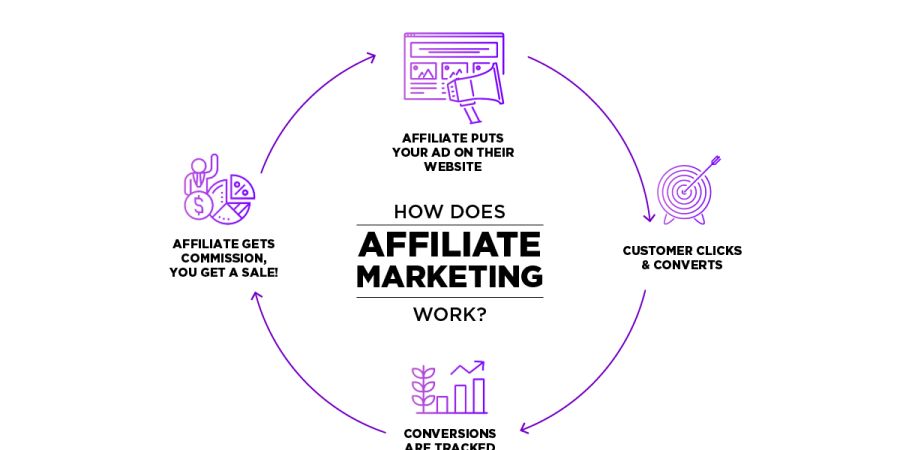

Affiliate marketing is a sort of performance-based marketing in which a company pays its affiliates for each client or visitor that was attracted as a result of the affiliate's own marketing initiatives. This marketing strategy has gained popularity recently as more companies see the value in working with bloggers, influencers, and other content creators to promote their goods and services.
In affiliate marketing, the affiliate advertises a good or service on their website, social media profile, or other online venues and receives a reward for each purchase made using their special referral link. 5% to 20% of the selling price is the normal range for commission rates, though they might vary based on the firm.
The first step in affiliate marketing is for the company to develop an affiliate programme, which can either be hosted on an affiliate network or run internally. The programme normally includes a list of rules and specifications for affiliates, including the acceptable forms of content for promotion and the compensation percentage for each sale.
After submitting an application to join the programme, affiliates are given a special referral link to utilise in order to advertise the company's goods or services. This link has a tracking code that enables the company to identify the affiliate who brought in the sale and give them credit for the commission.
The ability for businesses to reach a larger audience through the affiliate network is one of the primary advantages of affiliate marketing. Affiliates can be writers for blogs, social media influencers, or other content producers with a sizable fan base and active audience. Businesses can utilise their credibility and trust to advertise their goods and services by collaborating with these affiliates and tapping into their audience.
A less expensive method of advertising goods and services is affiliate marketing. Businesses only pay affiliates for the revenue they bring in, unlike with traditional advertising. This implies that companies may reduce their advertising expenses while still reaching a sizable audience.
The ability to evaluate and assess the success of a company's marketing initiatives is another advantage of affiliate marketing. Businesses can identify which affiliates are responsible for the most sales by analysing the source of each transaction and then modifying their marketing plans accordingly.
However, affiliate marketing may have some negative aspects as well. For instance, some affiliates could use unethical tactics to market products, such as spamming or misleading advertising. This could harm the company's reputation and result in legal problems.
